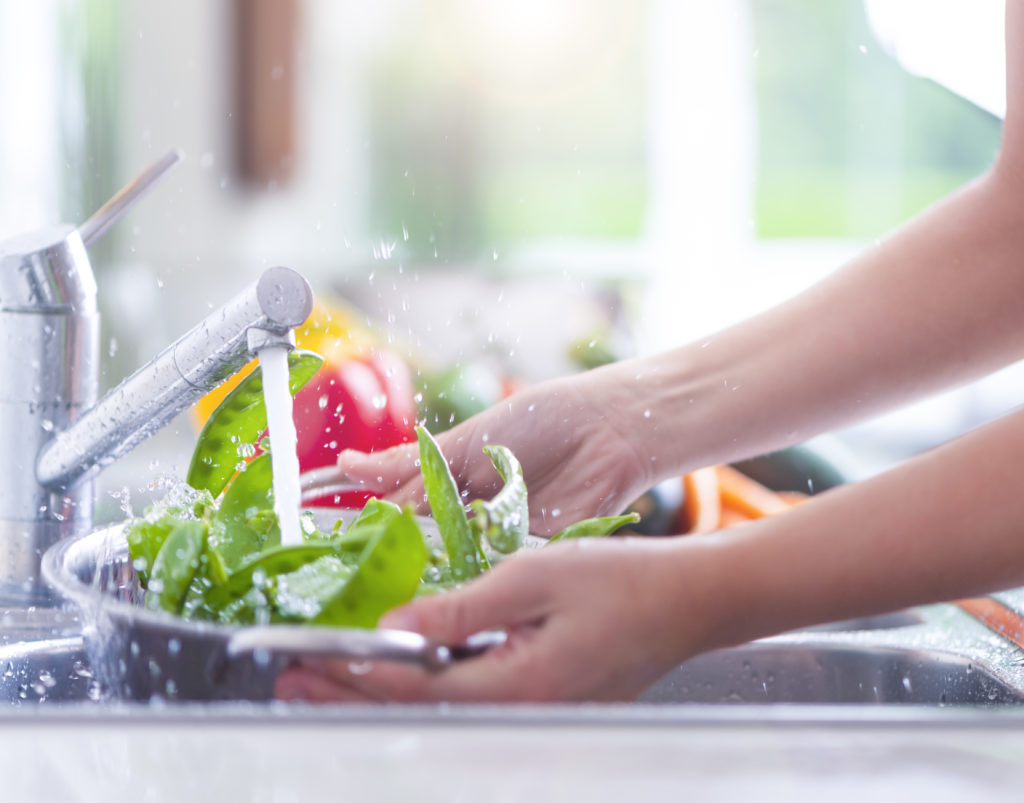
Most health risks that are linked to produce can be eliminated with proper food preparation such as cleaning produce thoroughly.
Below are tips to keep in mind when shopping for your next bunch of grapes or head of lettuce.
Buying
- Go to the farmers market early to avoid produce that has been sitting out all day.
- Ask the supermarket produce manager if there is more produce available, if you are not satisfied with the store’s selection.
- Buy loose produce rather than packaged for more control over what you select.
- Avoid produce with mold, bruises or cuts.
- Select only the amount of produce that you will use within a week.
- Purchase produce that is in season when possible.
Storing
- Promptly store produce that needs refrigeration.
- Note that some fresh, whole produce does not need to be refrigerated (such as bananas or potatoes). For other produce, refrigeration may lengthen the shelf life (such as with apples or cucumbers) or prevent rapid spoilage (berries and mushrooms).
- Refrigerate fresh produce within two hours of peeling or cutting.
- Throw away leftover cut produce that is left at room temperature for more than two hours.
- Discard cooked vegetables after three to four days.
Preparing
- Wash all fresh fruits and vegetables with cool tap water immediately before use.
- Clean produce before peeling to prevent dirt and bacteria from passing from the knife onto the fruit or vegetable. Gently rub produce while holding under plain running water; no soap is needed. Scrub firm produce, such as melons or cucumbers, with a clean produce brush.
- Cut away any damaged or bruised areas before preparing or eating. Remove and discard outer leaves of lettuce.
- Dry produce with a clean cloth or paper towel to further reduce bacteria that may be present.
- Use two separate cutting boards to avoid cross-contamination, use one for raw meats and the other for fruits and vegetables. Color-coded cutting boards can help you remember which is which.
- Cook raw sprouts (such as alfalfa, bean and clover) to reduce the risk of foodborne illness.
Courtesy of eatright.org Academy of Nutrition and Dietetics
